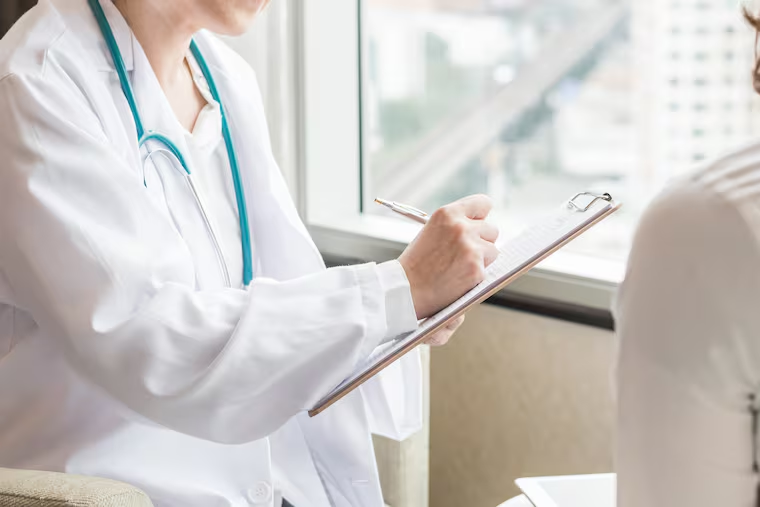A tired neurosurgery resident, a harsh remark, the regret she can’t forget | Opinion
As soon as I said those words, I felt a knot in my stomach. Years later, I still feel it whenever I remember that moment.

“Well,” I said, “at least you aren’t even that sick.”
I was with a patient who had nearly gone blind from a blood clot in the brain. The person was mid-sentence, telling me of concerns that vision would never be the same. As soon as I said those words, I felt a knot in my stomach. Years later, I still feel it whenever I remember that moment.
I had been a doctor for five months, coping with the constant flow of emergencies and tragedies that come with being a neurosurgery resident. In my altered world view, almost-blindness wasn’t too bad. Then I saw my patient’s stunned face and heard the quiet response: “Oh, I guess you’re right.” I excused myself from the room.
Neurosurgery residency is seven years of witnessing the worst day of someone’s life. We diagnose and treat brain tumors, ruptured aneurysms, blood clots, hydrocephalus, epilepsy, and a wide array of spinal disorders. My typical day starts with a 4 a.m. alarm so I can get to the hospital for rounds, and then check in the day’s surgical cases. Then it’s 12 to 16 hours of operating alongside an attending surgeon, like an apprentice.
Most days I feel very lucky. Right now, medical students are applying to match — an application process for residency programs—and neurosurgery is among the most competitive specialties. I remember refreshing my email browser over and over again, waiting to see whether I had been chosen.
And, I love operating. It is a privilege to take care of people every day.
But sometimes I really miss the mark. There are days when I feel tired or jaded; when my body just aches for rest. When someone I love needs me and all I can offer is an apology and a FaceTime conversation.
First, do no harm is an oath I took to protect my patients. Acknowledging my own needs is an important and uncomfortable part of the learning process.
The hardest part of my residency isn’t the hours or the missed family time. For me, it is delivering a devastating diagnosis — and remaining fully present and attentive to my patient — while feeling the buzz of my phone urging me to move on to the next person who needs me.
On the night I delivered that “not even that sick” comment, I was exhausted. I had a huge list of patients, and I was shuffling from room to room apologizing for waking them up to check in on night rounds.
At last, I reached the second-to-last patient on my list.
I felt my phone buzzing. Looking down, I saw the text — a brain tumor patient was being transferred to our unit who sounded pretty sick. It was going to be a long night.
As I put my phone away, the patient in front of me confided that going home was stirring a lot of anxiety. What if my sight never returns and I have to struggle to read my favorite books, or even get around the house, my patient asked.
And that’s when I said it.
I hope that writing about this episode will help me to forgive myself for my mistakes, while never forgetting them. There are other patients, other stories that have changed the way I practice medicine. I want to carry their stories with me in a way that makes me a better doctor. Every time I screw up, I try to learn from the experience. I hope that I am getting better.
Patti Zadnik Sullivan, MD, is a neurosurgery resident in the Perelman School of Medicine at the University of Pennsylvania. Zadnik received her medical degree from Johns Hopkins University and a bachelor’s degree in neurobiology from Harvard University, and attended Pennsbury High School in Fairless Hills. The opinions expressed in this article do not represent those of the University of Pennsylvania Health System or the Perelman School of Medicine.